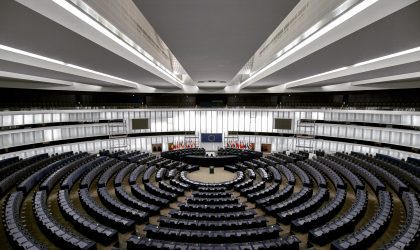
This is how you influence the elections
Three tips for lobbying in the run-up to the Dutch elections On September 1st, 2020, the Public Affairs community of Omnicom PR Group provided some insights into the process surrounding…

March 19, 2021

The Dutch parliamentary elections on March 17th resulted in a victory for Prime Minister Mark Rutte’s Conservative-Liberal party. The VVD rose from 33 to 34 seats, clearly distancing itself from other parties. But the biggest winner was another coalition party, the Social-Liberal D66. Under the new party leader Sigrid Kaag (Minister of Foreign Trade and Development Cooperation) the party won spectacularly: 5 extra seats (from 19 to 24).
Geert Wilders’ right-wing populist party, PVV, which has fiercely opposed the Rutte cabinet in recent years, and focuses mainly on the de-Islamization of Dutch society, did not go beyond 17 seats; 3 less than in the 2017 elections. The Christian Democratic coalition member CDA had to pay the toll for participation in the cabinet: the party lost 4 seats. The fourth coalition party, the orthodox Christian party, ChristenUnie, didn’t profit nor pay for their decision of four years ago to take government responsibility: it remained stable at five seats.
The left-wing parties didn’t benefit at all from their opposition role over the past period. The Social Democrats, PvdA, which received a huge beating from voters in the 2017 elections (from 38 to 9 seats), managed to maintain its 9 seats. GroenLinks (the Green Party) lost 6 seats leaving it with 8, and the SP (the Socialist party), lost 5 seats: from 14 to 9. During the formation in 2017, GroenLinks chose to leave coalition talks because their party’s stance was not sufficiently honored. The Party for the Animals, also left on the political spectrum, grew slightly, ending with one seat more at 6 seats.
On the right, the populist anti-establishment party Forum for Democracy, FVD, led by the charismatic but unpredictable Thierry Baudet, won a considerable number of seats (from 2 to 8), but that was a much smaller gain than what was expected six months ago. FVD, the largest Dutch party in the provincial elections two years ago, was confronted with internal disputes at the end of 2020, and a split was the result. The divisional JA21, in which various former FVD prominent figures united, received 3 seats and will join the House of Representatives for the first time.
Another newcomer, with 3 seats, is Volt, the Dutch branch of Volt Europe, a political movement that operates on a European level. The party has a social liberal signature. Two other parties, BIJ1 (pleading ‘radical equality and economic justice’) and BBB (citizen farmer movement), reached the electoral threshold: both parties obtained one seat. As a result, the Dutch political landscape is more fragmented than ever. There were 37 parties on the ballot paper and 17 parties are now represented in parliament; a record high.
There were 37 parties on the ballot paper and 17 parties are now represented in parliament; a record high.
The results give some indications with regards to the question what the new cabinet will look like. The chance that runner-up PVV will join is virtually zero: most parties have ruled out cooperation with Geert Wilders’ party, mainly because of his extreme views on Islam. There is hardly any doubt that Mark Rutte’s VVD is part of the new government and that he will once again become prime minister. It also goes without saying that big winner D66 will take part of the new coalition. In spite of their sensitive loss, CDA has a fair chance to return too. However, these three parties do not have a majority in Parliament.
Therefore, it is likely that one or two other coalition partners will be approached.During the formation, the question whether the new cabinet will have a majority in the senate also plays an important role. The current cabinet has not had a majority in the senate for two years, and that is quite difficult in day-to-day politics, although not insurmountable. After all, Rutte is extremely skillful in closing deals; also with opposition parties in the senate. With COVID-19 in mind, the urgency to forge a new cabinet is higher this time than it was four years ago, but that is by no means a guarantee for a truly short formation.
A change of course with regard to Europe is not expected: the Netherlands remains a critical but loyal EU member.
Even more difficult to predict than the composition of the coalition is the course of the next cabinet. But regardless of this composition, there are some general predictions to be made. In any case, the new cabinet will have to deal with reorganizing the economy in the post-corona era. The business community in particular will pay the bill for this. Furthermore, the government will continue on the path towards a sustainable and circular society, and will encourage or force both business and consumers to change their behavior. Other policy priorities will be raising the minimum wage, maintaining purchasing power as much as possible, reforming the tax system, and investing in education, housing, and health care. In addition, under the influence of societal discussions, themes such as inclusivity and government integrity will be on the agenda. A change of course with regard to Europe is not expected: the Netherlands remains a critical but loyal EU member. The exact composition of the next cabinet will determine the details of the new coalition agreement, but the general direction is clear: the Netherlands will have an investment cabinet; no austerity cabinet. The national debt, which rose sharply last year under the influence of corona, will therefore increase further in the coming years.
For more information:
Jacques Bettelheim
[email protected]
+31 6 53 49 78 72
Photo by Pixabay from Pexels.

Three tips for lobbying in the run-up to the Dutch elections On September 1st, 2020, the Public Affairs community of Omnicom PR Group provided some insights into the process surrounding…

Healthcare is essentially an exclusively national matter within the European Union. However, EU policy has a major impact on our lives and our health. To better understand this, we need…